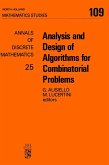Analysis of Qualitative Data: Volume 1, Introductory Topics introduces log-linear models oriented toward the social scientist, including assessments of the variability of parameter estimates using algebraic equations and summation notation. The book also contains examples involving basic problems in survey research, such as memory error. Other examples pertain to the General Social Survey of the National Opinion Research Center that examines public opinion on abortion, as well as the variations in homicide rates related to variables (such as race or sex of victim). The text explains the quantitative assessment of the size of departures from independence of polytomous variables by investigating the linear combinations of log cells means, known as log cross-product ratios. The book discusses the use of log odds, conditional log odds, cross-product ratios, and conditional cross-product ratios in interpreting hierarchical models such as those found in the General Social Surveys. The text describes logit models, namely, the Newton-Raphson algorithm used to explore the relationship of a dichotomous dependent variable to one or more independent variables. The book can serve and benefit mathematicians, students, or professor of calculus, statistics, and advanced mathematics.
Dieser Download kann aus rechtlichen Gründen nur mit Rechnungsadresse in A, B, BG, CY, CZ, D, DK, EW, E, FIN, F, GR, HR, H, IRL, I, LT, L, LR, M, NL, PL, P, R, S, SLO, SK ausgeliefert werden.









